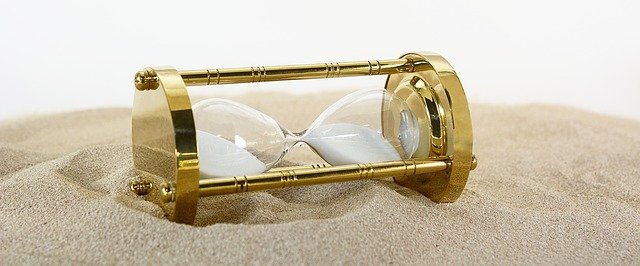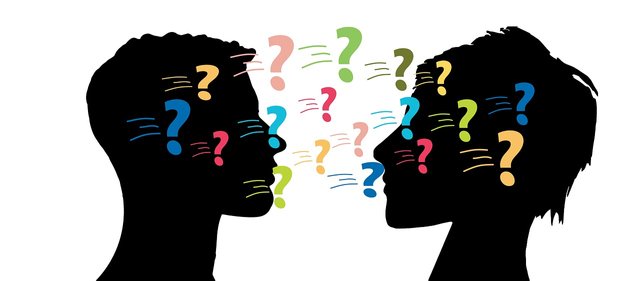Patience is a habit acquired not inborn trait - and developing habits is our great expertise
You travel around Europe by train and occasionally stop in town or village, go exploring the area and go back for a ride. In one of the stops, you lost the ticket that cost you a few hundred Euros and the entire route of your trip is based on it. You reached the train station helplessly and went to get help at the counter. But the clerk just heard you did not have a ticket and asked you to go and buy one of the machines. Your ambition to explain what happened and ask the clerk to verify the credit charges did not even result in a trial because of the eagerness of the person standing before you to continue his work as a series. If only he had a little patience.
Such an event could be etched in our memories for many years and even contribute to our understanding of the place we traveled and the culture of its inhabitants. "Hungarians / Belgians / Austrians / Others, they are so impatient," we'll tell friends. But do we meet the same standards we set for others? And not only to other cultures but also to people on the street, to co-workers, to our parents?

Day and night we try to find solutions to the challenges and develop a way of life that will bring out our best and give us meaning. Sometimes we try to bring all these changes into our lives but ignore the fact that patience is one of the most important and effective cornerstones on which we can begin to build habits. why? I think this happens because patience is one of the most difficult to cultivate.
The mathematical formula for patience
In the aquarium where we swim, time is an expensive commodity. The fewer people have, the more efficient, productive and important they feel. Impatience is a badge of honor because it means I'm too busy, which is considered a sign of relative success. Some blame the culture in which we live, but in the end, the fact that the environment has a place to improve does not mean that alignment will benefit us. We have a lot to gain from personal patience, regardless of what happens in the rest of the universe. The responsibility to cultivate patience is upon us, and we are the first to enjoy it.
Many studies - including Stanford University's The Marshmallow Test research - have proven that gratification is a very accurate predictor of success in achieving goals and life in general. Patience is the secret spice that turns the recipe into a winner; Is the difference between picking fruit and staring at a flowerbed wondering why the tree did not grow. Perhaps it is so significant because it involves one of the two layers of the structure of reality - time (the second layer is space). Patience is the ability to wait for things to happen, it's not to get out of your mind in traffic, it's to accept that long-term goals have gotten fat because they can not come true overnight. These examples illustrate the two important functions of patience: achieving goals in the future and maintaining the present coolness.
We must tell the truth, it is reasonable to assume that only a few can respond patiently to any situation. Most of us move on a certain scale and respond patiently to certain things, and with a total lack of patience for other things. In some situations, an intolerant response may be necessary, but that is not the point. The most important question is what is our default situation in routine management. Do we make informed purchases or tend to be impulsive? Do we interrupt a conversation between people because we need the attention of one of them, or do we respect their conversation? At home, when the children are questioning us about a trivial matter, are we trying to understand why the subject fascinates them, or we dismiss them with "how many questions do you have ...?"
What happens when our default is impatience? We make decisions that have a lot of automata and a little thought behind them. When we take the shortcuts, we tend to be negligent or make bad decisions. In most cases, we only shorten our way of failing to achieve our goals. In terms of keeping cool, impatience is one of the dominant factors in creating a sense of stress, stress, and anxiety. We feel it very well in the pulse that shrinks every cell in our body when we 'compete' with the driver next to us on the way to the traffic light. It does not matter if the situation stems from his impatience because if we are able to respond patiently, we can neutralize the stressful effect of external sources. All the more so when it comes from within us.
The big challenge with patience is that we look at it as a trait, a characteristic that we have or do not have. But "in practice", patience is more of a habit, and habits are something that people know to make themselves really good. In other words, in order to adopt patience, we must exercise patience. It's easiest to divert your attention at that moment to something else ... If the queue is long, I'll think about how hard the cashier's day must be.
This method works like learning a language. We start with simple things like letters, but after a while, we can even write a book.

Say, patience is related to its DNA in the dimension of time, so in a sense, it can be linked to an almost mathematical formula. A more thought time before each action = more quality results. This little thought, only a few seconds, is often enough to ease the impatience.
I used to be hot-tempered. Whenever someone said something, I would think of a way to disagree with him. Our habit of entering defensive positions whenever something is inconsistent with our worldview has made things so absurd that political discussions are often considered taboo even among friends. According to Pride, in this case, our impatience is expressed in intolerance. That is, we do not devote the time to mental processing to the ideas of others. Instead, we label them "different from my mind" and automatically rise to attack.
Instead of reacting hastily, respond to the question
Pride's insight that this urgency to express our opinion does not pay off fell on him at a professional conference on business innovation. Among the speakers were Pride himself, as well as the architect and designer Richard Sol Wurman, known as one of the two founders of the TED conferences. When freud came down from the podium, Wurman approached him, introduced himself, and flattered him. By all accounts, this is a great honor and Freid does not think otherwise. "It was very kind of him, he absolutely did not have to do it." But Pride of that time was still belligerent.
"While he (Wurman) presented his points on the stage, I created a list of things I did not agree with," says Pride, "and when I had the chance to talk to him, I quickly attacked some of his ideas." It must be understood that an attack on the ideas of the founder of the TED conference at an innovation conference is equivalent to Albert Einstein's assault on general relativity. But here we find the difference between a patient worldview and a worldview of stress and stress. "His response changed my life ... He said, 'Man, give it five minutes.'"
As a well-known figure, Wortmann could (and might have been expected) to respond decisively and put Pride in his place. Because his worldview was patient, he chose to answer like this: "It's okay to disagree, it's okay to attack ideas, it's great to have strong opinions and beliefs, but give my ideas a little time to sink before you're sure you want to go against them." What Wurman wanted was to complete the learning process to the end. How many times do we really bother to understand new ideas that are different from our worldview? Five minutes of patience, let things seep, make the confrontation first with us before we let it out, and then - instead of attacking, asking questions.

This is where Freed's insight is drawn from the brief and meaningful conversation with Wurman. "I came to the meeting to prove something, not to learn anything." Patience can make the difference between a mental stagnation and an endless process of learning and growth. What's more, the fact that someone is wrong does not mean that you can not learn from the conversation with him. It is possible that you have heard a different opinion and it turns out that your view more correct and successful for that matter. But the time you spend thinking about the different opinion, where it comes from and why, will surely provide you with additional, even indirect, information about the subject in question. All the more so for questions. Though no one has ever made anyone less intelligent.
Our time is all set, but compressing life to do as much as possible is not necessarily the most efficient way to use it. And perhaps more accurate to say that the final result sinner original purpose, that if the goal is to experience life to the fullest and to do that we choose the path of urgent and constant tension, they would not be progressed much. The amazing trick of patience is the ability to stretch our perception of time. As soon as we realize that the five minutes we 'shave' here and there - in a lot of sweat - are actually swallowed up in the general picture, we will realize that this approach is not worth the price. However, when we refer to as a resource for a more flexible, or in other words when we go through schooled patience, we can immerse ourselves in peace, to achieve long-term goals and be a constant learning process.
Images via Pixabay.com

nicely put...patience is very hard to cultivate at times yet is an invaluable asset
b.a.
You need the patience to get impatient :)
Thank you for your comment
Patience is a virtue, and one sadly "modern" society is slowly killing off. For me in the UK the on demand culture we are adopting of fast food, next day or even same day delivery with Amazon Prime, High Speed internet is breeding future generations to expect instant gratification - and if it doesn't happen fast enough everyone knows. Whatever happened to the best things comes to those who WAIT.
I agree with all your word, dear friend
you are so right.
Upvoted on behalf of @thehumanbot and it's allies. Write less but write great original content, which is the key to success in Steemit. If you are using any image or video, cite proper source. Even if its your own image or video, it's worth mention the same.
Also if you know someone who is not using his voting power, then forward them to @sanmi on Steemit chat to do some charity and earn curation. Alternatively, you can follow me in SteemAuto and upvote the posts, that I upvote.
And remember to do some charity when you are rich by contributing to me. Check out my Introduction Post for more details.
True. I was born in patient but through years, I became a patient person.
Suffer in silence?
Not really suffered in silence. Hahaha